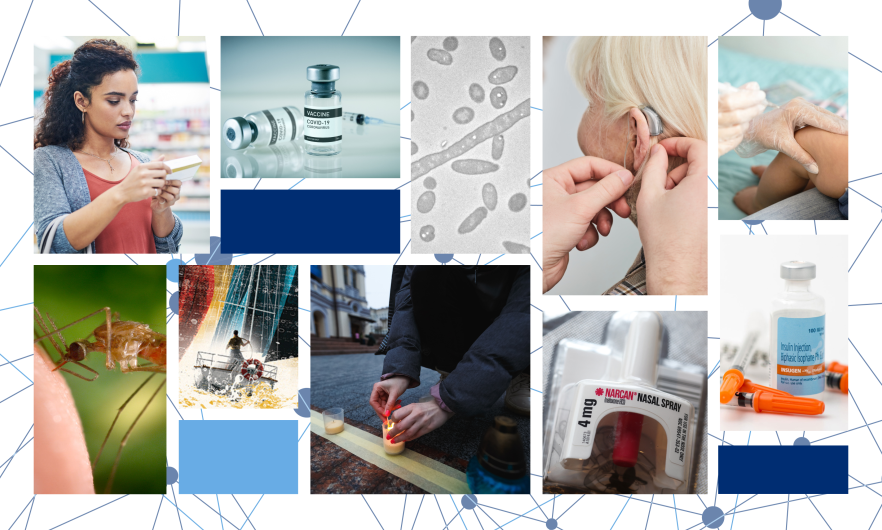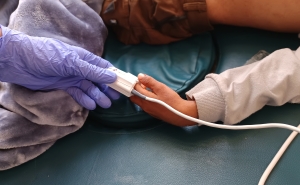Progress in Public Health: The 2023 Highlights
2023 in public health: In the year COVID finally took a back seat, what else got our attention?

2023 was a difficult year with some major setbacks for public health, but there were also some significant advances.
Here’s where we saw progress, fresh ideas, and hope:
For the first time in a few years, COVID did not take center stage.
The Biden administration ended the COVID-19 national emergency in April, and the WHO declared the end of the COVID-19 global health emergency in May. A major player in these milestones was the “remarkable progress” made by the scientific community to conduct “the largest global mass vaccination campaign ever,” said William Moss of the International Vaccine Access Center. Plus: COVID boosters were replaced with a standardized annual vaccination schedule.
As for other viruses: 2024 is shaping up to be concerning in terms of lots of viruses circulating and lower vaccination rates for flu and COVID—but so far the flu, RSV, and COVID “tripledemic” are not as severe as last year.
Making Headway Against RSV
Several new products became available to help protect those at highest risk from RSV. The FDA approved a new RSV vaccine for pregnant people and an antibody treatment for babies that could substantially lower the rates of severe RSV infections among children—big wins against the leading cause of hospitalization in infants in the U.S. and one of the main drivers of child mortality. Also new this year: the RSV vaccine for people over age 60.
OTC FTW
A shift from prescription-only to over-the-counter access made several health products much more widely available to those who need them.
Hearing aids: Dubbed a ”game-changer” for those with hearing loss, OTC hearing aids stand to make the devices better, cheaper, and much more widely available. That’s a major win considering that hearing aids not only help hearing but can slow the onset of dementia.
Opill: This FDA-approved OTC option gives millions of people access to safe, effective oral contraceptives at retail stores and online without a prescription. The decision also drove forward the conversation about whether contraception access should be a federal right.
Narcan: Making the naloxone nasal spray used to reverse opioid overdose available over the counter is a major victory for harm reduction advocates and a much needed step toward preventing thousands of overdose deaths each year. “This is a big win and long time coming,” says Sachini Bandara, PhD ’18, MS, an assistant professor in Mental Health.
Prescription Price Cap
The price of insulin has risen more than 300% in the last 20 years, forcing many Americans to ration or hoard supplies. But this year, President Biden capped the monthly cost at $35 per month for seniors on Medicare as part of the Inflation Reduction Act; Eli Lilly committed to the same cap for insured and uninsured patients and lowered their insulin list price by 70%.
Big Malaria Wins
On the heels of the first malaria vaccines, new discoveries published this year about mosquitoes' human scent preferences could lead to novel malaria interventions. Plus, research showed that a naturally occurring bacterium and a chemical it secretes can inhibit the malaria parasite’s development in mosquitoes—and stop them from passing it on to humans.
Mental Health Innovations
Using the Commons Elements Treatment Approach model developed by Laura Murray, PhD, MA, and a team of researchers, trained counselors are delivering quality mental health care in conflict areas like Ukraine.
The model also shows lots of promise domestically. Scalable and easily adaptable to a wide range of needs, CETA can help reduce wait lists and caseloads for providers while making life-changing, evidence-based mental health care more widely available to those in the U.S.
Harnessing the Power of AI
If properly wielded (and calibrated), AI has huge potential for public health, and 2023 saw innovations like its use for predicting suicide risk among Indigenous people, decoding long COVID, and spotting biomarkers for disease.
“Given that AI is the first technology to supersede human intelligence and may ultimately escape our control, we need to ensure AI meets human needs and not vice-versa,” Scott L. Zeger, PhD, MS, the John C. Malone Professor of Biostatistics, wrote in Hopkins Bloomberg Public Health magazine.
The Johns Hopkins Bloomberg School of Public Health will be keeping a close eye on all of these issues and more in the coming year. Stay tuned on our website, Global Health NOW and Expert Insights newsletters, social media, magazine, and podcast.
Annalies Winny is a writer and producer in the Office of External Affairs at the Johns Hopkins Bloomberg School of Public Health.
Aliza Rosen is a digital content strategist in the Office of External Affairs at the Johns Hopkins Bloomberg School of Public Health.
RELATED:





